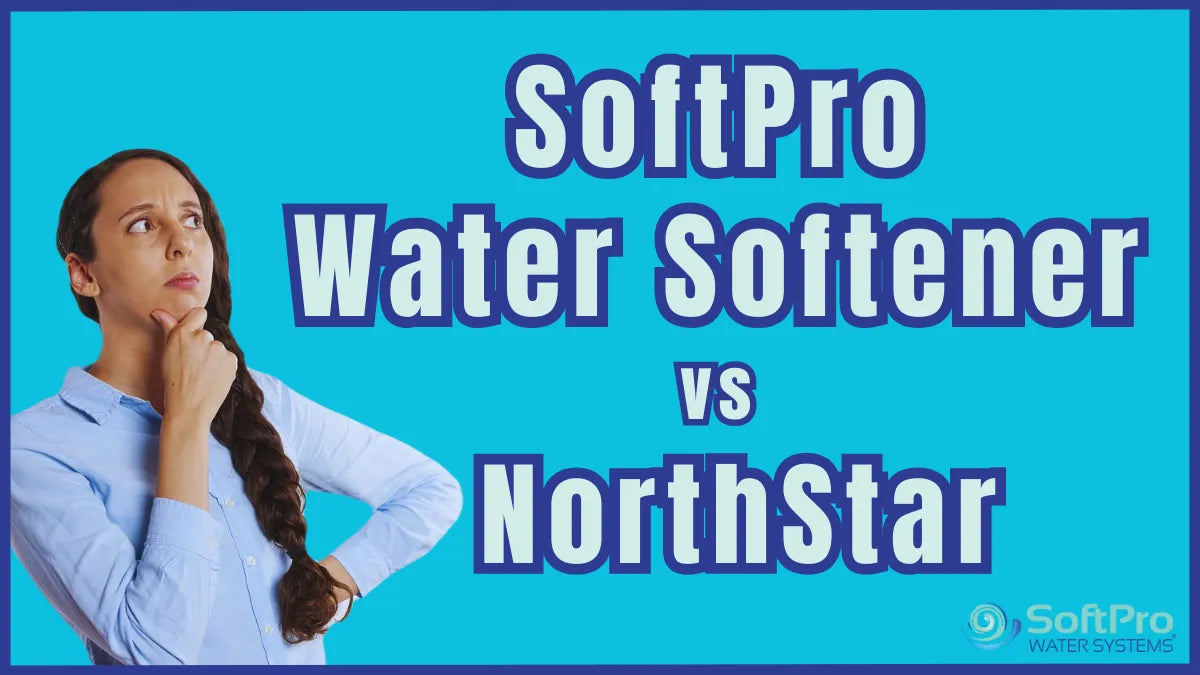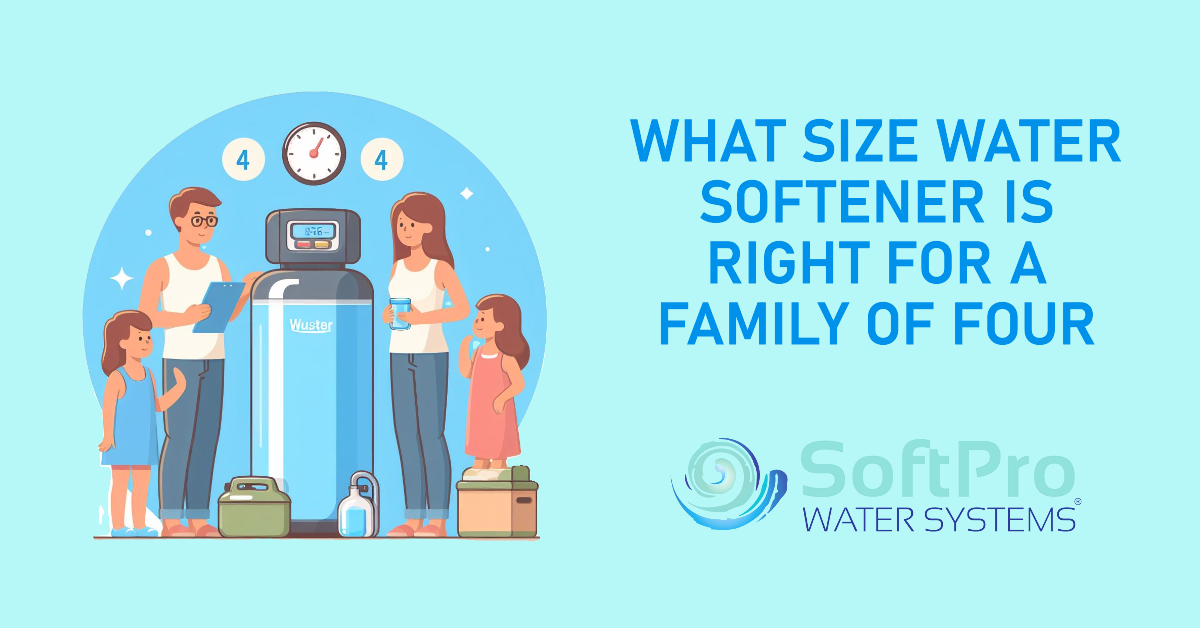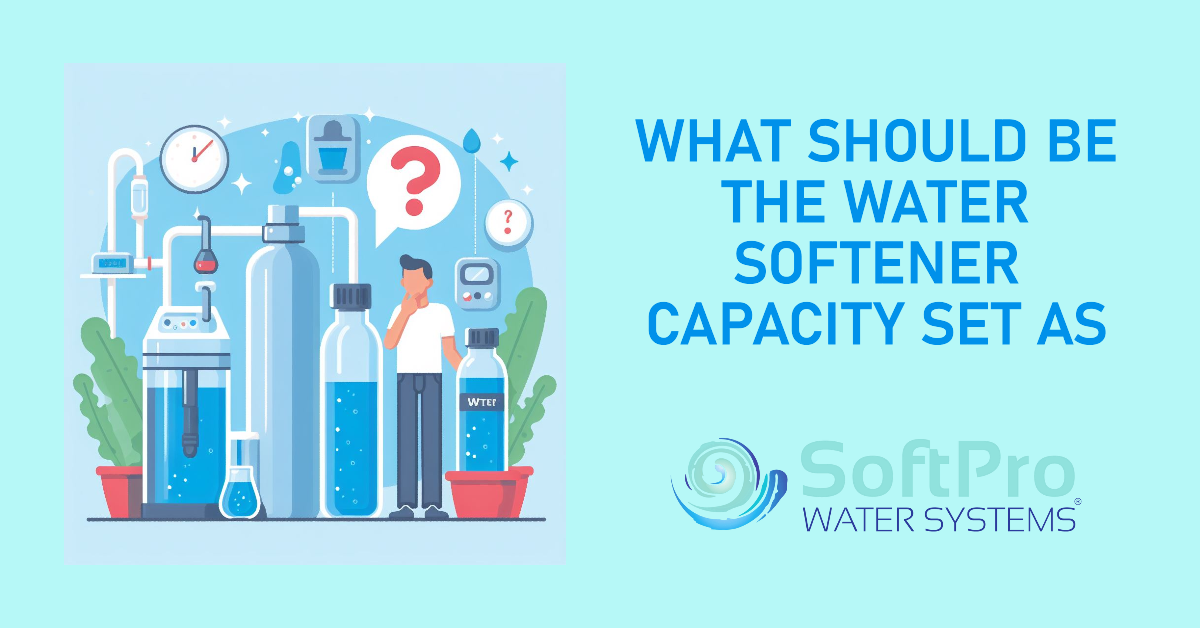SoftPro vs NorthStar: Performance, Features, Cost, Suitability Comparison
Table of Contents
The Hard Water Problem
Living with hard water can be a frustrating experience. It leaves behind stubborn mineral deposits on dishes, fixtures, and appliances, reduces the effectiveness of soaps and detergents, and can even cause skin irritation. But beyond the aesthetic nuisances, hard water also poses significant challenges for your home's plumbing and overall water efficiency.
Understanding the Signs and Symptoms
- Visible residues: Mineral buildup on faucets, showerheads, and inside appliances like kettles and coffee makers.
- Reduced water pressure: Clogged pipes and fixtures can lead to lower water flow and pressure.
- Faded and discolored clothing and fabrics: Hard water can make laundry less effective, leaving clothes dull and faded.
- Dry and itchy skin: Excessive mineral content in water can strip natural oils from your skin, leading to dryness and irritation.
- Scale buildup in pipes and appliances: This can lead to premature wear and tear, higher energy bills, and even plumbing failures.
The Impact of Hard Water
- Increased costs: Hard water can lead to higher energy bills due to reduced appliance efficiency, as well as more frequent repair and replacement costs for damaged plumbing and appliances.
- Environmental impact: Increased soap and detergent usage to combat hard water residues contributes to water pollution and environmental strain.
- Health concerns: While not directly linked to major health risks, hard water can exacerbate skin conditions like eczema and psoriasis.
Treating Hard Water: The Importance of Softening:
Water softeners work by removing minerals like calcium and magnesium from your water supply, replacing them with sodium ions. This "softens" the water, preventing the buildup of mineral deposits and resolving the issues associated with hard water.
Moving forward, we'll explore the different water softener options available, the key considerations for choosing the right one for your needs, and delve into a head-to-head comparison of SoftPro and Northstar water softeners to help you make an informed decision about tackling hard water in your home.
Water Softener Solutions
With the inconveniences and costs of hard water laid bare, let's dive into the various solutions available to combat this common household challenge. Water softeners come in a range of types and configurations, each with its own advantages and considerations.
Salt-Based vs. Salt-Free Softeners
- Salt-based softeners: The most common type, utilizing a resin bed to exchange sodium ions for calcium and magnesium. Highly effective in removing hardness, offering long-lasting results. Requires regular salt replenishment and disposal of brine wastewater, potentially impacting local ecosystems.
- Salt-free softeners: Utilize different technologies like chelation or templation to prevent mineral buildup without removing them from the water. Environmentally friendly, eliminate brine waste, and often require less maintenance. May not be as effective as salt-based softeners in addressing severe hardness or iron issues.
Additional Factors to Consider
- Grain capacity: Indicates the softener's ability to remove hardness before needing regeneration. Choose a capacity based on your household water usage and hardness level.
- Flow rate: Ensures the softener doesn't significantly impede water flow in your home. Select a model with a flow rate exceeding your peak water usage demands.
- Features: Look for user-friendly features like automatic regeneration, self-cleaning functions, and app connectivity for remote monitoring and control.
- Installation and maintenance: Some softeners require professional installation, while others are DIY-friendly. Consider your comfort level and budget when choosing.
- Warranty and customer service: Opt for a brand with a reliable warranty and readily available customer support for peace of mind.
Next, we'll dive into a head-to-head comparison of SoftPro and Northstar water softeners, examining their key features, performance, and suitability for different needs. By understanding the available options and considering your specific requirements, you can confidently choose the right water softener to conquer hard water challenges in your home.
Head-to-Head Comparison: SoftPro vs. Northstar Water Softeners
Now, let's get down to brass tacks and compare two popular water softener brands: SoftPro and Northstar. We'll analyze their key features, performance aspects, and suitability for different needs to help you determine the best fit for your home.
Performance
- Grain Capacity: Both brands offer a range of models with varying grain capacities to suit different water usage and hardness levels. SoftPro generally leans towards higher capacities, potentially offering longer intervals between regeneration cycles for larger households with moderate to high hardness. Northstar boasts some models with advanced demand-based regeneration technology, optimizing salt and water usage by analyzing actual water consumption.
- Flow Rate: Both brands maintain consistently high flow rates, ensuring minimal impact on your home's water pressure. Consider your peak water usage demands when choosing a model to avoid any potential bottlenecks.
- Advanced Filtration: Some SoftPro models offer additional filtration capabilities for iron, sediment, and other contaminants, providing a more comprehensive water treatment solution. Northstar primarily focuses on hardness removal, although some high-end models offer optional add-on filtration features.
Features
- User Interface and Control: Both brands offer user-friendly control panels, but SoftPro tends to have a more modern and intuitive interface with touch controls and LCD displays. Northstar often utilizes traditional button controls and LED indicators, appealing to users who prefer a simpler interface.
- Automatic Regeneration and Self-Cleaning: Both brands offer automatic regeneration cycles, but SoftPro's advanced models may feature demand-based regeneration for improved efficiency. Self-cleaning functionalities are readily available in both brands, simplifying maintenance.
- App Connectivity: Some high-end models from both brands offer mobile app connectivity for remote monitoring and control. This feature allows you to track water usage, adjust settings, and trigger regeneration cycles from your smartphone.
Cost and Installation
- Initial Purchase Price: SoftPro water softeners generally fall within the mid-range price bracket, while Northstar models can range from budget-friendly options to premium models with advanced features.
- Salt and Maintenance Costs: Salt-based models, including most from both brands, require regular salt replenishment, with SoftPro's high-capacity models potentially needing less frequent salt refills. The maintenance costs for both brands are comparable.
- Installation: Both brands offer DIY-friendly models for plumbing-savvy homeowners, while professional installation services are readily available for both. Consider your expertise and budget when choosing the installation method.
Suitability
- SoftPro: With its high grain capacities and advanced features like demand-based regeneration and iron filtration, SoftPro can be a good choice for larger households with moderate to high hardness or specific contaminant concerns.
- Northstar: Offering a wider range of budget-friendly options and traditional functionality, Northstar may be suitable for smaller households with basic hardness removal needs or for those seeking a simpler, more affordable solution.
Remember, the ideal water softener depends on your specific water hardness level, household size, budget, and desired features. Carefully consider your needs and compare the available models from both brands to find the perfect solution for conquering hard water in your home.
Beyond SoftPro and Northstar: Exploring Additional Options and Considerations
While SoftPro and Northstar are prominent players in the water softener market, it's important to remember that other options exist and deserve exploration. Let's broaden our scope and consider some additional factors to ensure you make the most informed decision for your hard water woes.
Alternative Water Treatment Solutions
- Reverse Osmosis (RO): Highly effective in removing a wide range of contaminants, including minerals, heavy metals, and bacteria. Ideal for areas with extremely hard water or specific health concerns. Requires regular filter replacements and may produce wastewater.
- Magnetic Water Conditioning: Utilizes magnets to alter the physical properties of minerals, preventing them from scaling and clinging to surfaces. Eco-friendly, requires no ongoing maintenance, but effectiveness can vary depending on water hardness.
Choosing the Right Solution
- Water Testing: Before diving into softener options, get your water professionally tested to determine its hardness level and presence of other contaminants. This crucial information will guide your choice towards the most effective and appropriate solution.
- Environmental Impact: Consider the environmental footprint of your chosen method. Salt-based softeners, while highly effective, produce brine wastewater. Opt for eco-friendly alternatives like RO systems with proper wastewater management or magnetic conditioners if environmental concerns are high on your priority list.
- Budget and Maintenance: Compare the initial purchase price, ongoing maintenance costs, and salt or filter replacements for different options. Factor in installation costs if seeking professional help. Choose a solution that fits your budget and maintenance capabilities.
Seeking Professional Advice
Consult a qualified water treatment specialist for personalized recommendations based on your specific water conditions, household needs, and budget. They can help you navigate the various options, answer technical questions, and ensure you choose the most suitable solution for your home.
Remember, there's no one-size-fits-all answer to combating hard water. By understanding the available options, considering your specific needs, and seeking professional guidance if needed, you can confidently conquer hard water challenges and enjoy the benefits of soft, clean water in your home.
Conclusion: Weighing the Pros and Cons, Achieving Clear Water Confidence
We've delved deep into the world of hard water solutions, exploring the ins and outs of SoftPro and Northstar softeners, alternative options, and crucial considerations. Now, it's time to wrap up and empower you to make the winning choice for your home.
Recap of Key Differences
- SoftPro: Higher grain capacities, demand-based regeneration in some models, iron filtration options, modern interface, potentially higher initial cost.
- Northstar: Budget-friendly options, simpler functionality, traditional interface, potentially lower maintenance costs.
Choosing Your Water Softener
- Large household with moderate to high hardness? Consider SoftPro for its capacity and advanced features.
- Smaller household with basic needs? Northstar's affordability and simplicity might be ideal.
- Environmental concerns? Explore RO systems or magnetic conditioners, depending on your budget and water conditions.
Remember:
- Water testing is key: Knowing your water's hardness and contaminant levels guides your choice.
- Budget and maintenance matter: Factor in initial costs, ongoing expenses, and your DIY skills.
- Seek professional advice: A qualified specialist can tailor recommendations to your specific situation.
Ultimately, the best water softener is the one that meets your unique needs and preferences. Whether you choose SoftPro, Northstar, or another option, remember that conquering hard water is within reach. Enjoy the peace of mind that comes with clear, soft water flowing through your taps, transforming your daily routines and protecting your appliances.
You can also read more articles about SoftPro compared to other brands, including SoftPro vs Morton and SoftPro vs Nuvo H20.




![SoftPro Chlorine+ Carbon Whole House Water Filter to Remove PFAS, Chlorine, Chloramine & Pesticides [City Water Filters Series]](http://www.softprowatersystems.com/cdn/shop/products/softpro-whole-house-chlorine-filter-282008.jpg?v=1758858973&width=140)
![SoftPro Iron Filter - Iron Master AIO - Best Iron Filter for Well Water [Air Injected Water Filter / Katalox]](http://www.softprowatersystems.com/cdn/shop/products/softpro-iron-master-aio-water-filtration-system-remove-iron-sulfur-manganese-using-air-injection-for-optimal-performance-412868.jpg?v=1758859831&width=140)













